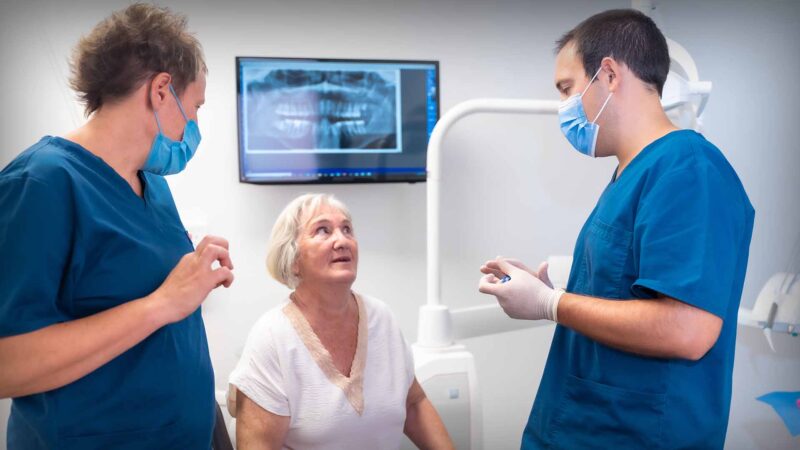INTERVENTION IN HEARING LOSS FOR AUSTRALIAN PATIENTS ACROSS CARE SETTINGS AND WITH PRE-EXISTING CONDITIONS Audiologist talks about indications for GPs, pharmacists, primary care nurses and specialists.
Lauren McNee, is an Audiologist and National Clinic Coordinator Training Manager at Audika Australia, with over 15 years of extensive experience in the industry. For the past five years, she has been dedicated to providing comprehensive training and support for the audiological team and front desk staff at Audika. Her primary focus is to ensure that clients receive the highest standard of care, aligning with industry-leading practices.
Throughout her career, Lauren has been an advocate for early and routine hearing tests, stressing the importance of integrating them into general medical check-ups, especially for individuals diagnosed with conditions such as diabetes. She firmly believes that proactive screening for hearing loss can significantly impact an individual’s overall well-being and the effectiveness of medical treatments.
In her role, Lauren emphasises the urgency of addressing sudden hearing loss, highlighting the time-sensitive nature of available treatment options. She advises healthcare professionals, including GPs, pharmacists, primary care nurses and specialists, to remain vigilant for subtle signs of hearing loss in their patients. Such signs may include difficulty following prescription guidelines, miscommunication during conversations, or non-verbal cues like a tilt of the head or asking for repetitions.
Furthermore, Lauren underscores the crucial role of professionals in various settings, such as aged care nurses and pharmacists, in identifying and addressing hearing loss issues among their clients in the community.
Beyond her clinical work, Lauren actively promotes the understanding of recreational and commercial noise-induced hearing loss. She highlights the potential long-term consequences of recreational noise exposure, such as prolonged use of earbuds and exposure to loud household and leisure activities.
In commercial settings, Lauren advocates for the proactive use of protective equipment for hearing loss in industries such as mining or construction, where individuals may be exposed to hazardous noise levels without proper protection.
You Might also like
-
Awareness campaigns and HCP Toolkits for thyroid health
In 2021, the Australian Thyroid Foundation released analysis to show, well over 1 million Australian are living with an undiagnosed thyroid disorder, including thyroid cancer, lower IQs, lifelong disability, and a causal or possible contributory factor – in the development of other neurological disorders such as ADHD and autism. Some of the challenges for diagnosis and treatment can be addressed by producing material for health care practitioners during patient presentations.
‘Recent statistics show well over 1 million Australians are living with an undiagnosed thyroid disorder, awareness and testing can prevent unwarranted outcomes for mothers and their babies’ says ATF CEO Beverley Garside OAM
The Australian Thyroid Foundation has lodged a Pre-Budget Submission for the Federal Budget 2024-25 to counter increasing misinformation on social media creating dietary deficiencies such as an increasing number of young women, who are planning pregnancy or already pregnant opting for plant based milks such almond, soy or oat milk coffee as an alternative to standard cow’s milk, which is a source of iodine and alternate milks do not include.
-
Dental and oral health care priorities for the elderly
In 2023, there are a number of changes occurring in dental services including the start of a new Senate inquiry and new registered nurses in residential aged care. Yet in the meantime there are gaps and delays in dental and oral health interventions for elderly Australians, unless training is more widely deployed.
Australian Health Journal spoke to Leonie Short, a dental therapist working for Seniors Dental Care Australia on what she considers are dental and oral health priorities for the elderly, based on her work in the aged, home and disability sectors.
-
Developing the nation’s first Health and Medical Research Strategy
Professor Steve Wesselingh serves as the CEO of NHMRC, having initially trained as an infectious diseases doctor. His career includes prominent roles such as Head of the Infectious Diseases Unit at the Alfred Hospital, Director of the Burnett, Dean of Medicine at Monash University, and the inaugural Director of SAHMRI. Under his leadership, NHMRC plays a critical role in funding health and medical research, allocating approximately a billion dollars annually to investigator-led projects, clinical trials, and various strategic initiatives. NHMRC also collaborates internationally with organisations such as the MRC and the EU, and manages grant allocation for the MRFF, which distributes $650 million each year.



